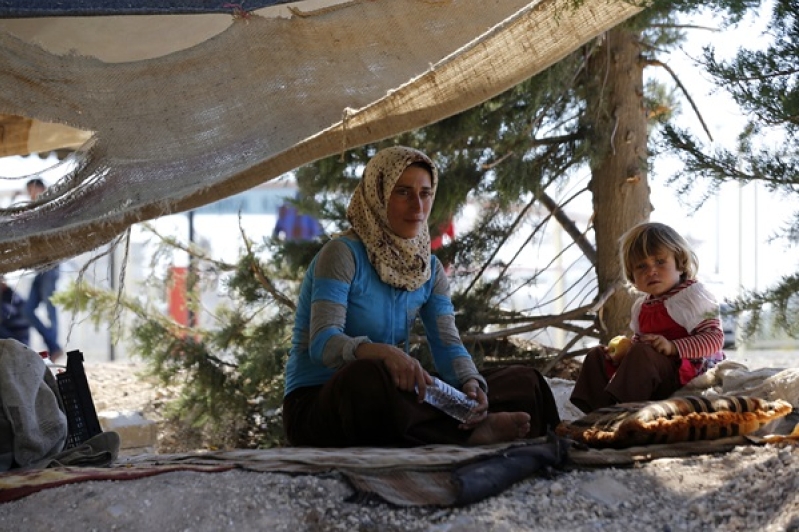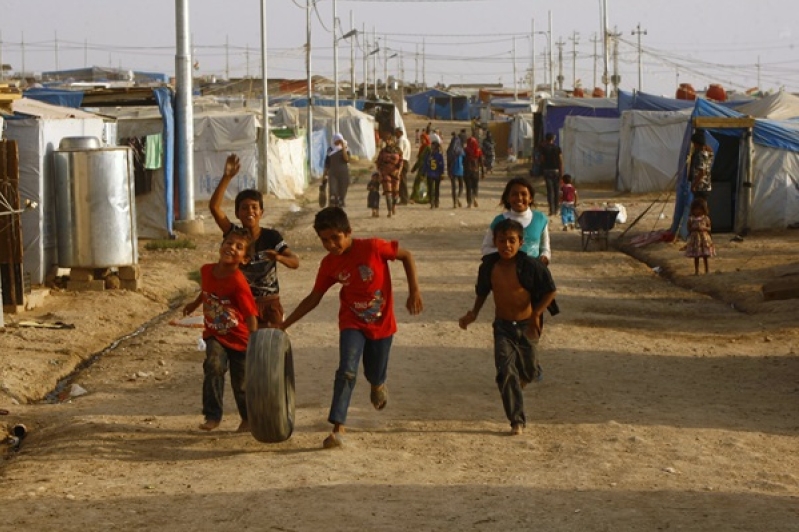Syria's deputy prime minister Quadri Jamil said at a proposed peace talks conference in Geneva that the state's civil war has reached stalemate, where "neither the armed opposition nor the regime is capable of defeating the other side."
"This zero balance of forces will not change for a while," Jamil told UK's Guardian newspaper in an interview. He also added that Syria's economy has suffered catastrophic losses, about $100 billion, equivalent to two years of normal production, during the war.
If accepted by the armed opposition, a ceasefire would have to be kept "under international observation," which could be provided by monitors or UN peace-keepers - as long as they came from neutral or friendly countries, he said.
Leaders of Syria's armed opposition have repeatedly refused to go to what is called Geneva Two unless Assad first resigns. An earlier conference on Syria at Geneva was held in June last year, but no Syrians attended.
Jamil said his government would bring the following proposals to the table at the summer: "An end to external intervention, a ceasefire and the launching of a peaceful political process in a way that the Syrian people can enjoy self-determination without outside intervention and in a democratic way."
US, UK, and France have accused Syrian government forces of carrying out chemical attack in the Ghouta district on 21 August, but President Bashar al-Assad has blamed rebel groups.
Jamil said that last week's UN report on the 21 August chemical weapons attack which killed more than 1,000 people was "not thoroughly objective".
He said Russia had produced evidence showing the rockets that were identified by the UN inspectors as carrying sarin were indeed Soviet-made. But he denied responsibility.
"They were loaded with chemicals by Gaddafi and exported to fundamentalists in Syria after Gaddafi fell," he said.
Syria has begun sending details of its chemical weapons to the Hague-based Organization for the Prohibition of Chemical Weapons (OPCW) as part of a US-Russia brokered deal, the BBC reported. Syria was given a Saturday deadline to give a full list of its chemical arms.
Meanwhile, two Syrian rebel groups have agreed a ceasefire in the northern town of Azaz after two days of fighting that raised fears of a war within a war, according to BBC.
Michael Luhan, a spokesman for the OPCW, which is responsible for policing the treaty outlawing chemical arms, said they are now examining the initial submission, "It's quite long...and being translated."
Syria's civil war broke out in March 2011, and over 100,000 Syrians have died in the conflict since. The United Nations have estimated that more than two million refugees have fled to neighboring countries, Turkey, Lebanon, or Jordan, where camps have been setup near the border. While World Food Program and numerous other international NGOs can be seen across the base camp, the camps, located in the most arid part of the world, are still underfunded and lacking in water.

Geoff Tunnicliffe, CEO and secretary general of the World Evangelical Alliance, was in Jordan for a conference earlier this month called by King Abdullah II that focused on the status of Middle Eastern Christians. He had a chance to visit the Za'atari camp, which is located 12 km from Syria and is home to an estimated 120,000 refugees.
Tunnicliffe described to The Christian Post the conditions at the camp. "There's a crisis here with the refugees. Imagine 30 million people arriving in the United States in the last six months as refugees. That's the kind of percentage of people that we're talking about that are now in Jordan," he said.
"So you can imagine the strain that's on the government and the NGOs and so one of the things that we want to do is draw attention to this crisis and call upon our community to respond in a very significant way to help the refugees."
Meanwhile, more than four million Syrians are displaced within Syria, the National Geographic reported. Many are unable to leave because of border restrictions, ideology, the belief that they should not leave their country, or fear of crossing to the unknown. These displaced Syrians are within firing range and are always in danger.
Christians from around the world have called for prayers for peace in Syria. Pope Francis said in a five-hour evening praying service on Sept. 7, "Can we get out of this spiral of sorrow and death? Can we learn once again to walk and live in the ways of peace?"







